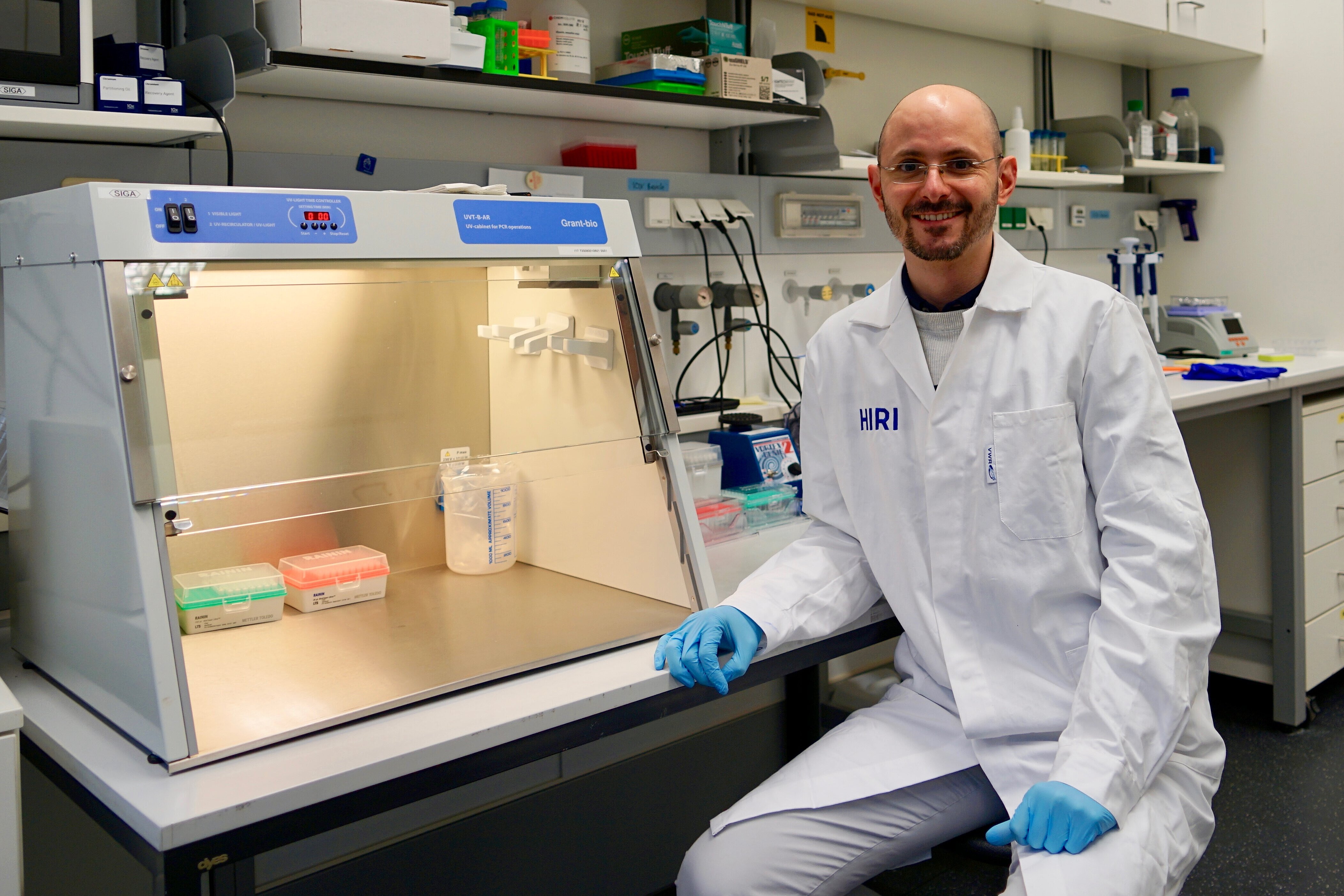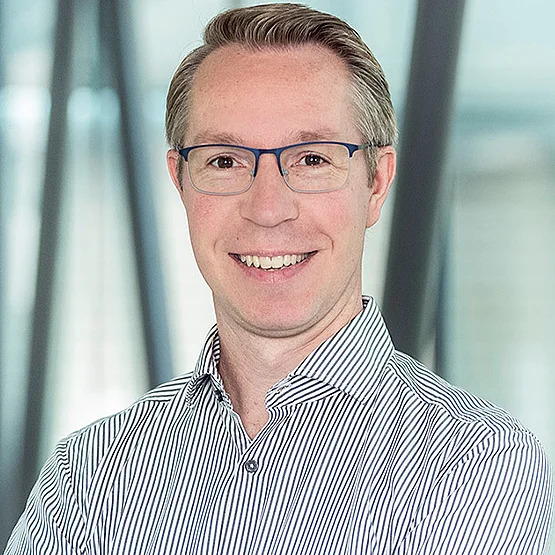Um die Auswirkungen einer Infektion auf den Zellstoffwechsel sichtbar zu machen, vergleicht er gesunde und infizierte Zellen in Hinblick auf die in ihnen vorhandene RNA (englisch: Ribonucleic Acid). RNA dient in der Zelle als Vorlage für die Herstellung von Proteinen und zeigt an, welche Gene in der Zelle aktiviert wurden. „Durch den Vergleich der RNA-Profile zwischen gesunden und infizierten Zellen können wir das zelluläre Räderwerk im Detail ausleuchten und feststellen, wann und an welchen Stellen es aus dem Takt gerät, und wo genau Krankheitserreger Sand ins Getriebe streuen“, erklärt Saliba.

Shining a spotlight on the cellular mechanism
To make the effects of an infection on cell metabolism visible, he compares healthy and infected cells in terms of their RNA (ribonucleic acid). RNA serves as a template for the production of proteins in the cell and indicates which genes have been activated in the cell. “By comparing the RNA profiles between healthy and infected cells, we can shine the spotlight on the cellular mechanism in detail and determine when and where it gets out of sync and where exactly pathogens throw a spanner into the works,” explains Saliba.
His path towards infection research on a cellular level began with bioengineering studies in Toulouse. “Even back then, I had a keen interest in the microbiology and infection biology majors,” says the 39-year-old with French-Lebanese roots. “What makes pathogens tick? At which points do they attack? How do they trick our cells? – Questions like these already fascinated me during my studies.” During his doctorate at the Institut Curie in Paris, Saliba initially focused on a different topic and developed systems for cancer cell analysis. He then went to the European Molecular Biology Laboratory in Heidelberg, where he did research on methods to visualise protein-lipid interactions. “These are very important aspects in understanding how enzymes work in our body,” says Saliba. “Biochemical research was exciting, but I wanted to research and work in an area that my heart beats for – infection research.” Therefore, in 2013 he moved to the Institute for Molecular Infection Biology (IMIB) at the University of Würzburg, where he was involved in establishing RNA-based single cell analysis.
He has been working at HIRI since 2017 and heads a six-member team. Together, they hope to track down the machinations of pathogens in the cell – especially at the beginning and in the further course of an infection. “There are bacterial pathogens that can survive undetected in different cell types and cause recurrent infections,” says Saliba. “Paradoxically, this is even the case in macrophages, i.e. in the immune cells that are actually responsible for destroying pathogens.” In order to find the dark hiding spots of the pathogens in the cells, RNA-based single cell analysis can, figuratively speaking, turn on the spotlights. “The changes in the RNA profiles give us important clues as to exactly how the pathogens affect the cells in order to remain undetected for a long time,” says Saliba. “The single cell analysis provides us with a valuable and promising analysis tool to effectively tackle infections from a new angle in the future.”
While Saliba focuses on small details in his research, he loves to see the big picture in his private life: “For me, nothing is more beautiful than flying. My dream is to get my pilot's licence soon.” Saliba has been living and working in Germany for more than ten years now. Doesn't he miss the French way of life now and then? “In gastronomic terms, sometimes I do,” laughs Saliba. “But that's basically the only thing. I live and experience the German-French friendship every day, and that's really great!”
Author: Nicole Silbermann
Published: March 2021

